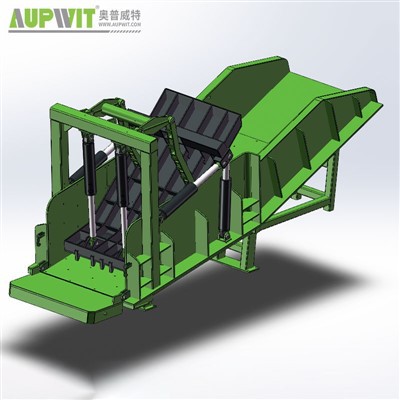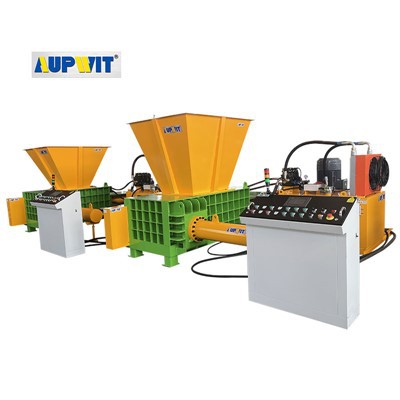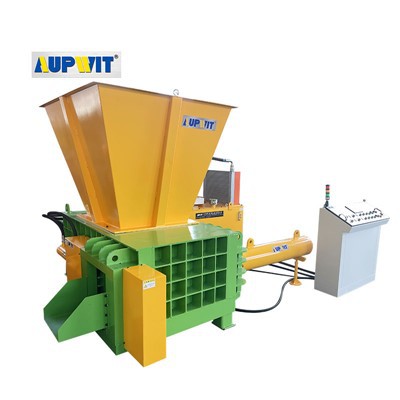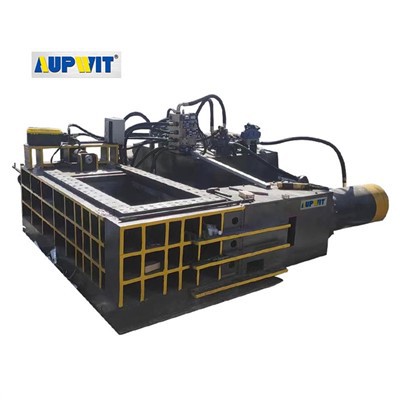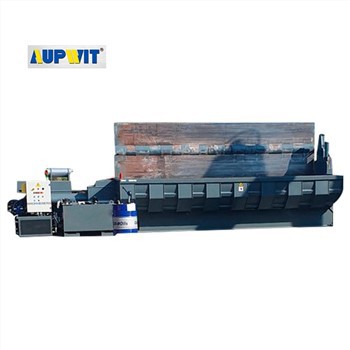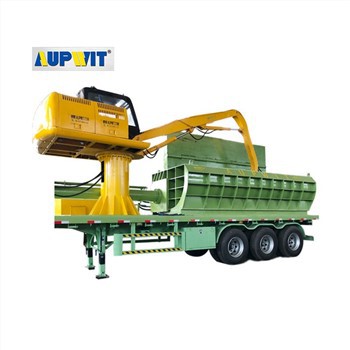Introduction
Hydraulic metal balers are essential equipment in the recycling and scrap metal industries. They are primarily used to compress metal scrap into compact bales, making storage, transportation, and further processing much easier. The CE certification, a mark of quality and safety standards in the European Union, adds significant value to these machines. This article explores the importance of CE certification for hydraulic metal balers and provides a general overview of the price range for these machines.
What Is CE Certification?
CE (Conformité Européenne) certification is a mandatory standard for products sold in the European Economic Area (EEA). It indicates that the product meets EU safety, health, and environmental protection requirements. For hydraulic metal balers, obtaining CE certification means that the machine complies with the strict regulations for machinery safety, environmental standards, and energy efficiency.
This certification assures buyers that the baler meets high-quality standards, reducing risks of malfunction and accidents. For companies involved in scrap recycling, purchasing CE-certified equipment is crucial to ensure both operational safety and compliance with international standards.
Key Features of CE Certified Hydraulic Metal Balers
-
Hydraulic Compression System
Hydraulic metal balers use powerful hydraulic systems to compress scrap metal into tight bales. These machines are capable of handling various types of metals, including aluminum, steel, and copper, by applying significant pressure to compact materials.
-
Automatic Operation
CE-certified balers often come with fully automated systems that reduce manual labor, enhance throughput, and improve operational efficiency. This automation ensures consistency in bale size and density, which is critical for safe and efficient handling.
-
Energy Efficiency
CE certification also emphasizes energy efficiency. Modern hydraulic balers incorporate energy-saving components, such as variable-speed drives and optimized hydraulic systems, to minimize power consumption while maintaining high performance.
-
Safety Features
A CE certification ensures that the baler meets stringent safety standards. Common safety features include pressure relief valves, emergency stop buttons, safety barriers, and sensors to detect malfunctions or obstructions during operation.
-
Durability and Longevity
CE-certified balers are built from high-quality materials that enhance durability. The use of premium steel alloys, durable hydraulic systems, and reinforced components ensures that these balers can withstand continuous use in demanding environments, offering a longer service life.
Factors Influencing the Price of Hydraulic Metal Balers
The price of CE-certified hydraulic metal balers varies based on several factors. Below are some of the key considerations that affect pricing:
-
Machine Capacity and Bale Size
Larger balers capable of handling higher volumes of scrap metal and producing larger bales typically come at a higher price. The bale size can range from small (under 100 kg) to large (over 500 kg), with bigger machines requiring more advanced hydraulic systems and more robust components.
-
Automation and Features
The level of automation in the baler also influences the price. Machines with fully automated feeding, compressing, and ejection systems tend to be more expensive than those that require manual loading and operation. Additional features such as adjustable bale sizes, energy-saving systems, and high-tech control panels can add to the cost.
-
Hydraulic System Specifications
The power of the hydraulic system and the materials used for the construction of the baler also affect the pricing. High-capacity hydraulic systems with advanced pressure control features and premium seals are often priced higher due to their durability and efficiency.
-
Brand and Manufacturer
The reputation and experience of the manufacturer also play a role in the price. Well-known, established brands with a track record of producing reliable, high-quality balers may charge a premium for their machines. Additionally, manufacturers that provide comprehensive after-sales services and warranties can justify a higher price point.
-
Customization Options
Customization options, such as specific bale sizes, feed openings, or hydraulic system upgrades, can increase the cost of the baler. Custom-designed balers tailored to meet unique operational needs tend to be more expensive than standard models.
Price Range for CE Certified Hydraulic Metal Balers
While prices can vary significantly based on the specifications and features mentioned above, here is a general price range for CE-certified hydraulic metal balers:
-
Small-Scale Hydraulic Balers
- Price Range: $10,000 - $30,000
-
These machines are typically suited for smaller operations with lower throughput. They are designed to handle lighter materials and produce smaller bales, making them more affordable for small businesses or scrap yards.
-
Medium-Scale Hydraulic Balers
- Price Range: $30,000 - $70,000
-
These balers are more versatile and suitable for medium-sized operations. They can process a wider variety of scrap metal types and produce larger bales. The additional features, such as semi-automation, energy efficiency, and improved hydraulic systems, push the price higher in this category.
-
Large-Scale Hydraulic Balers
- Price Range: $70,000 - $150,000+
-
Large-scale hydraulic metal balers are capable of handling high volumes of scrap metal and producing large, dense bales. These machines are fully automated, feature advanced hydraulic systems, and often come with additional safety and energy-saving features. The price range for these machines can go well beyond $150,000 depending on the size and specific features.
Additional Costs to Consider
In addition to the base price of the hydraulic metal baler, there are other costs that businesses should consider:
-
Installation and Setup
Depending on the complexity of the machine, installation can add several thousand dollars to the total cost. Some manufacturers include installation services as part of the package, while others charge separately.
-
Maintenance and Spare Parts
Regular maintenance is essential for keeping the baler running efficiently. Additionally, spare parts like seals, hoses, and hydraulic components may need to be replaced periodically. Maintenance costs vary based on the machine’s age, usage, and manufacturer.
-
Shipping and Delivery
Shipping costs can be substantial, especially for larger machines. Depending on the location of the buyer and the manufacturer, international shipping charges can add to the overall cost of the machine.
Conclusion
CE-certified hydraulic metal balers are an excellent investment for companies in the scrap metal recycling industry, offering enhanced safety, efficiency, and durability. While the price range varies depending on the machine's specifications, capacity, and features, businesses can expect to pay anywhere from $10,000 to over $150,000 for a high-quality, fully automated machine. By considering factors such as capacity, automation, and customization, companies can select the right baler that aligns with their needs and budget, ensuring they receive a high return on investment through improved operational efficiency and compliance with industry standards.


